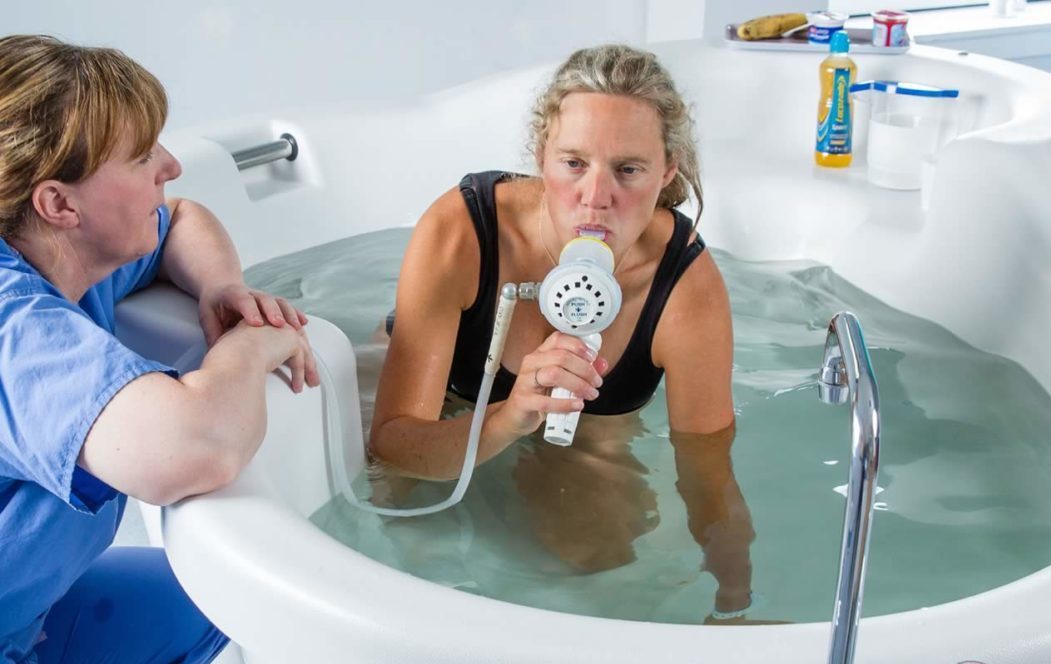Water births no riskier than births out of water, study finds

New research confirms that for women with an uncomplicated pregnancy, having a waterbirth is as safe as leaving the water before birth.
Researchers looked at the birth experiences of over 87,000 women with an uncomplicated pregnancy who used water immersion during labour for comfort and pain relief.
The study was designed to find out if staying in the water to give birth is as safe for mothers and their babies as leaving the water before birth.
Cardiff University led research
Professor Julia Sanders, a Professor of Clinical Midwifery at Cardiff University who led the research team, said: “In the UK around 60,000 women a year use a birth pool or bath for pain relief in labour, but some midwives and doctors were concerned that waterbirths could carry extra risks.
“There have been reports that babies could become seriously ill, or even die, after waterbirths, and that mothers were more likely to have severe tears or heavy blood loss. A large research study was therefore needed to look at the safety of waterbirths in the UK.
“We wanted to establish if waterbirths with NHS midwives are as safe as giving birth out of water for women and their babies at low risk of complications.”
The POOL study, led by Cardiff University’s School of Healthcare Sciences and Centre for Trials Research, studied NHS records from 87,040 women who used a pool in labour between 2015 and 2022, across 26 NHS organisations in England and Wales.
Research
The researchers looked at rates of severe tears experienced by women, rates of babies needing antibiotics or help with breathing on a neonatal unit, as well as the rates of babies dying.
“The main aim of our study was to answer a question commonly asked by women using birthing pools or baths during labour – midwives are often asked by mothers if they should stay in or leave the water to give birth if labour remains uncomplicated.
“In the women we studied, some left the pool for extra medical care or more pain relief. Most of the women who got out of the pool for extra medical care were first time mothers – 1 in 3 first time mothers got out of the pool for extra medical care, compared to 1 in 20 of the women who had previously given birth,” added Professor Sanders.
Overall, the researchers found that around half of all women who used a pool in labour had a waterbirth.
The researchers showed that around 1 in 20 first time mothers, and 1 in 100 mothers having their second, third or fourth baby, had a severe tear.
They also found that around 3 in every 100 babies needed antibiotics or help with their breathing on a neonatal unit after birth, and baby deaths were rare. But rates of these and other complications were comparable for births in and out of water.
Their data showed that rates of caesarean section were low, with under 6% for first time mothers and under 1% for mothers having their second, third or fourth baby.
“Worry”
Professor Peter Brocklehurst, Emeritus Professor of Women’s Health at the Birmingham Clinical Trials Unit, said: “Given that 10% of women use immersion in water as pain relief in labour, the results of this study will have implications for thousands of women a year in the UK and many more around the world, where immersion in water during labour is common practice.”
Professor Chris Gale, a Consultant Neonatologist at Chelsea and Westminster NHS Foundation Trust in London, said: “Many paediatricians and neonatologists worry that births in water might carry extra risks for babies, but the study found convincing evidence that for women with an uncomplicated pregnancy this is not the case.”
Rachel Plachcinski, a parent representative on the study team and former antenatal teacher, said: “It’s also reassuring to see that midwives are picking up potential problems during labour and advising those women to leave the pool, so mothers and their babies can receive appropriate monitoring and care.”
“Our research was able to scientifically establish that giving birth in water was not associated with an increase in risk for mother and baby. By investigating NHS data from over 87,000 births in England and Wales, we have been able to provide information that can empower and support mothers and midwives when making decisions during labour,” added Professor Sanders.
The research, Maternal and neonatal outcomes among spontaneous vaginal births occurring in or out of water following intrapartum water immersion: The POOL cohort study, was published in BJOG, the official academic research journal of the Royal College of Obstetricians and Gynaecologists.
Support our Nation today
For the price of a cup of coffee a month you can help us create an independent, not-for-profit, national news service for the people of Wales, by the people of Wales.






